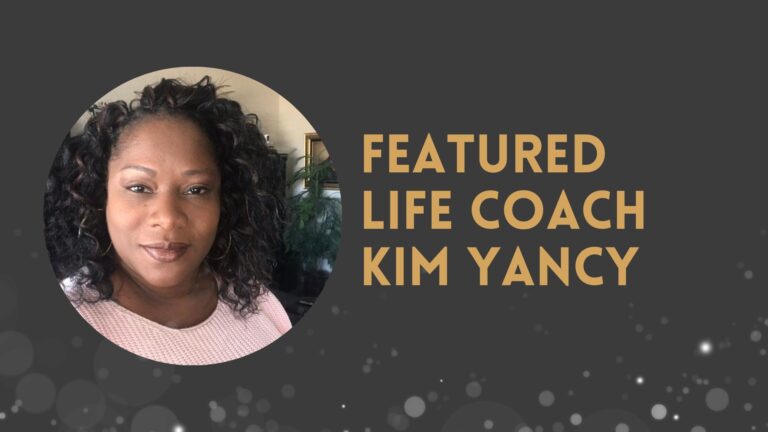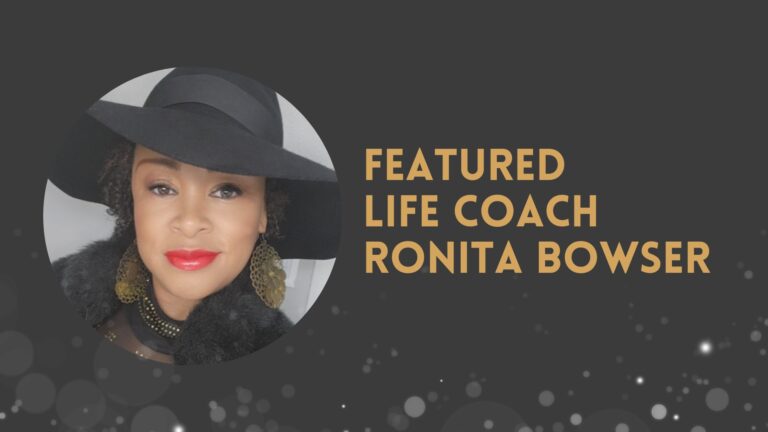How Becoming a Life Coach Can Help Educators Transform Their Careers
Are you an educator stuck in a rut? Discover career transformation for educators with the help of the resources you gain becoming a life coach.
Life coaching is incredibly transformative; it gives you invaluable tools that you can use to grow both personally and professionally.
Not all certification programs are the same. The Global Institute for Coaches and Entrepreneur’s life coach certification program has a concentration in mental and behavioral health. This curated experience will equip you to work exclusively with at-risk youth, and adults.
Ultimately you’re not only transforming your career, you’re creating change on a much deeper level for your students, their families, and the communities they are a part of. But, let’s for a moment just focus on you, because you’re the core of it all.
With the help of a powerful life coach certification program, you’ll be able to gain clarity in your career, identify your strengths, goals, and passions, and take actionable steps toward a fulfilling and rewarding career path.
What does career transformation look like for educators?
Career transformation is a big concept. And the truth is, it looks different for everyone.
For some, it may refer to major differences in the day-to-day operations at their workplace; they could be more confident in their abilities, more skilled in their fields, and maintain a better work-life balance.
A career transformation could also look like an advancement – for example, moving up teaching income tiers based on education level. It could also mean a move into administration or a position on the school board.
Finally, a career transformation could be a total 180 – moving away from the education realm and focusing their skill set onto a different career path.
No matter how big or small the transformation may seem, it’s going to make a huge impact on your life. When you’re taking steps towards your goals, this leads to higher feelings of fulfillment both professionally and personally.
And life coaching makes these career transformations possible for all educators.
Teachers Leveling Up By Becoming Life Coaches
One of the biggest advantages of teachers leveling up by becoming certified life coaches is that they are able to transfer and use the skills they have already acquired in the education field.
Teachers know how to communicate with people, build strong relationships, stay organized, and manage time well – all important skills for life coaching. Additionally, their knowledge of psychology and human behavior can be applied to their life coaching practices.
For teachers looking to pursue life coaching as a career transformation, there are many certifying programs available so they can get trained on the specifics of coaching. With these courses, teachers will learn about different coaching models and frameworks, as well as tools and techniques for working with their students more effectively.
Further certifications also provide additional information on starting a business or finding an organization to work within. This opens the door to more income opportunities outside of the classroom.
What Benefits Does Becoming a Life Coach Have on My Career?
Becoming a life coach is an incredibly rewarding profession that can provide you with a range of professional and personal benefits. Along with the feeling of satisfaction from helping others, you have the opportunity to gain financial security and professional recognition in your career. Additionally, it can be a great way to gain experience and demonstrate your skills as a leader, listener and communicator.
On the financial side, life coaches can earn competitive salaries depending on their level of expertise, industry experience and location.
Coaching services are also highly sought after, meaning there is potential for life coaches to develop their own businesses and create multiple streams of income.
Professionally, becoming a life coach is also great for those looking to network and build relationships with influential people in their respective fields. It offers the opportunity to attend events such as conferences or seminars where you can meet other professionals in the coaching industry or learn more about the latest trends in coaching practices.
Many organizations look for certified life coaches when recruiting new members or consultants so having this certification could open up further job opportunities.
Just like teaching, becoming a certified life coach requires dedication and hard work, but also provides immense rewards that can benefit your career immensely. Taking the time to become certified will give you the credibility and recognition you need to stand out from other educators.
Additionally, it gives you an opportunity to expand your knowledge of coaching and discover new ways to help your students through classroom management, life skills, etc. You may even find that you gain a greater sense of purpose as a coach and become more motivated to reach your personal and career goals.
Life Coaching Concepts Transform Your Career Path
Sometimes it’s easier to see how things work together from a different perspective. Let’s say we hired a life coach to help with career advancement in the education field. You can start to see how you could implement those concepts as a practitioner.
1. Identify your goals and values.
The very first step in working towards your goals is to identify them.
Reflect on what you’re looking to get out of life coaching and your career. Then, investigate what your values are and how they interact with your professional and personal life.
A life coach has the tools and resources to help you identify these values and set concrete, measurable goals that align with them. They can also help you clarify any half-formed goals and develop a plan for achieving them.
By focusing on what matters most to you, you can gain clarity and direction in your career and subsequently, make meaningful changes that lead to greater fulfillment and success.
2. Develop a plan for career growth and advancement.
Life coaching can be a powerful tool for educators who are looking to advance their careers.
These goals can be short or long-term – whichever best suits your current trajectory.
By working with a coach, you can develop a clear plan for achieving your goals and taking your career to the next level; this might involve identifying new opportunities for professional development, building your network, or developing new skills and competencies.
Life coaches can also help you transition into a new career path – identifying transferable skills and working with you to find your dream role.
Along the way, your coach will help you stay focused and motivated as you work towards your goals; they’ll provide necessary support and guidance as you navigate any obstacles that arise along the way.
With this guidance and support, you can transform your career in education to fit any role you desire and achieve the success that you deserve.
3. Overcome obstacles and limiting beliefs.
Have you ever heard the phrase “You’re getting in your own way?”
The human brain can be incredibly discouraging – thoughts of self-doubt and limiting beliefs may get in the way of you achieving your full potential.
Self-growth is not always a linear process. There are drawbacks, bumps along the road, and major detours before you get to the place you want to be.
One of the key benefits of working with a life coach is the ability to identify and overcome obstacles and limiting beliefs that may be holding you back in your teaching career.
Common limiting beliefs include self-doubt, fear of failure, or a lack of confidence in your abilities; if you’re experiencing them, you’re not alone.
Too many educators let their fears get in the way of taking chances and pursuing career advancement.
Your life coach can help you develop strategies for overcoming these obstacles and building your self-confidence. That way, you’re better equipped to take on new challenges with ease.
With this support, there is no limit to what you can achieve in your teaching career.
4. Adopt a growth mindset
Growth is continuous – if you want to achieve your best self and gain transformation in your career, you need to continue growing, learning, and evolving.
Life coaches can help you develop a growth mindset – one that encourages you to be a life-long learner. This is a major step in career transformation for educators with the help of life coaching
Once you’ve learned this growth model, you can take it with you in all aspects of your life and use it as a beacon to welcome positive change to your world.
A growth mindset will take you past your original goals and help you achieve a potential that is beyond what you could have ever imagined.
5. Maintain accountability and momentum.
When you first begin a major journey in career transformation, it’s easy to feel motivated by all the possibilities that lay ahead.
Once you start putting in the hard work, however, this motivation tends to dwindle.
When we experience setbacks or are not achieving our goals as fast as we’d like to, it’s easy to feel defeated in our efforts.
We also tend to lack momentum in our personal growth when life gets busy. With a career as demanding as teaching, it can be difficult to find a spare minute during the day – let alone designated time to work on career advancement.
One of the most valuable benefits of having a life coach is that they can keep you accountable while you are trying to reach your goals.
If you’re lacking momentum, life coaching has the skills to pick you up and redirect you to a more manageable path.
By having a person on your team, you can achieve transformation in education, no matter the setbacks.







